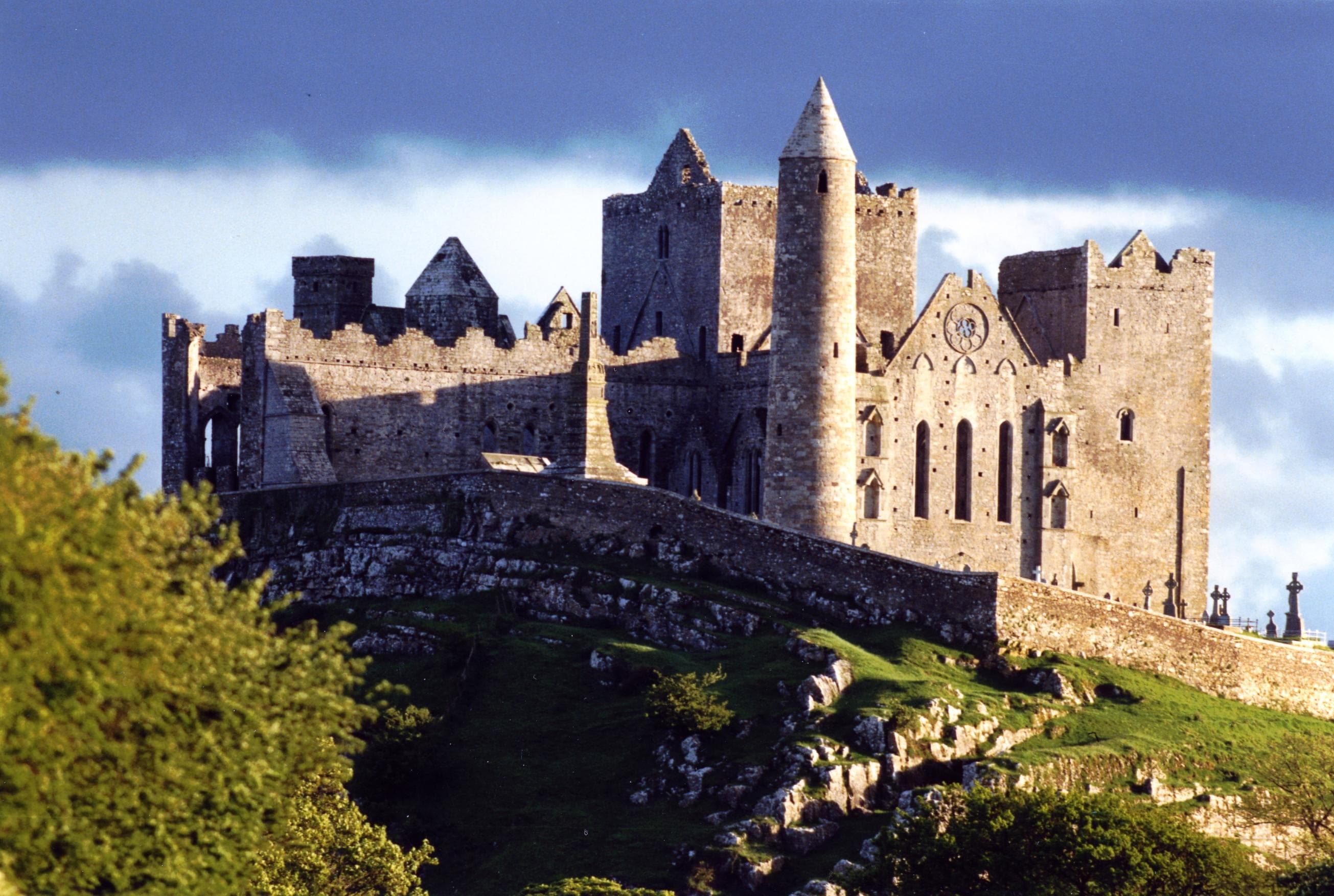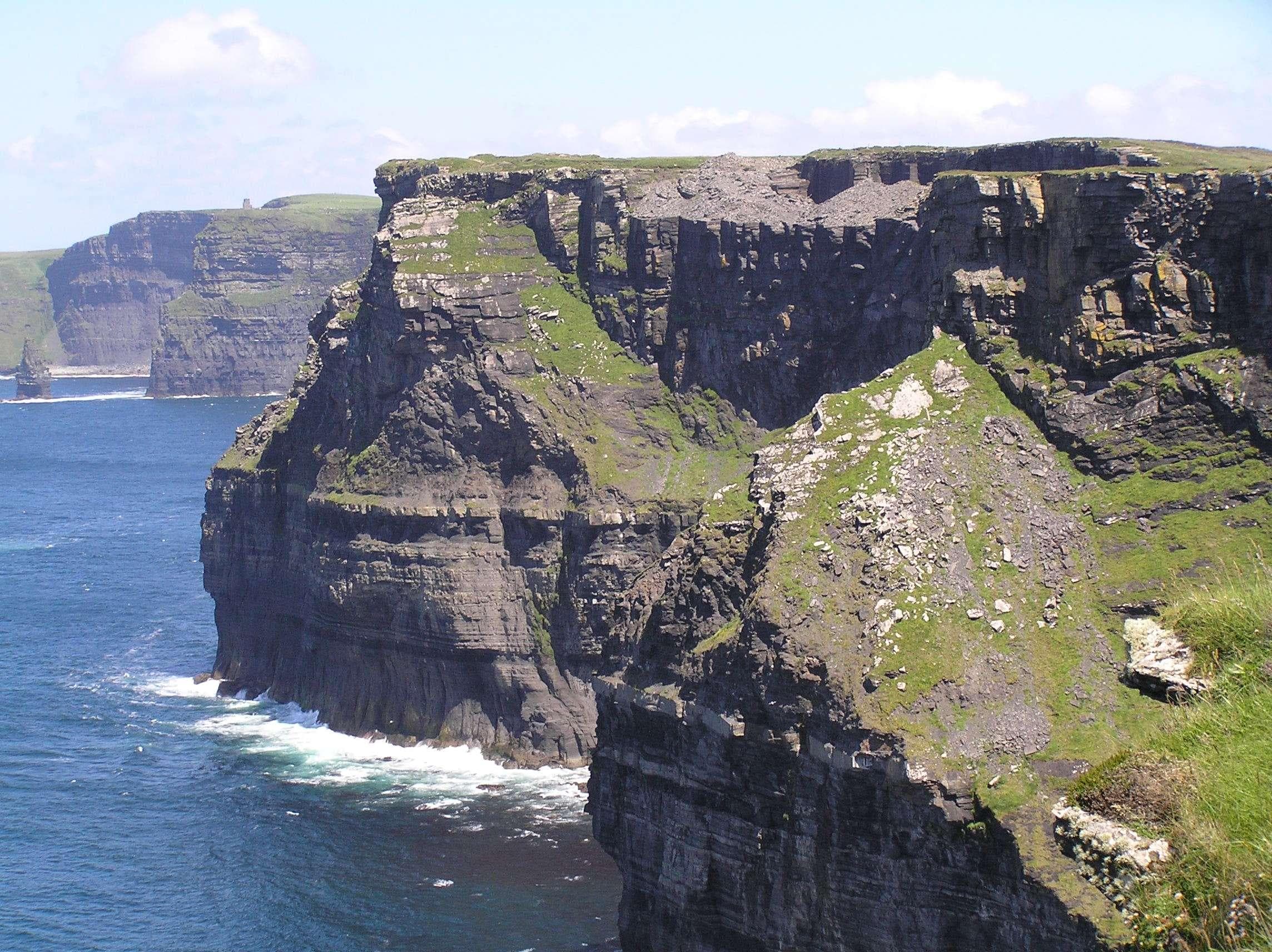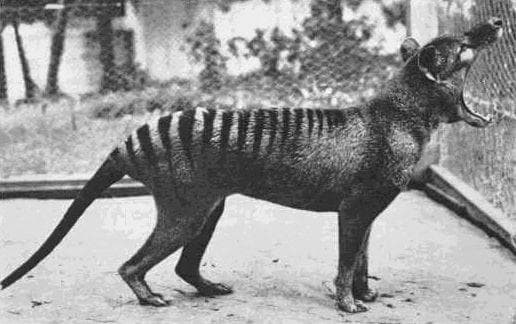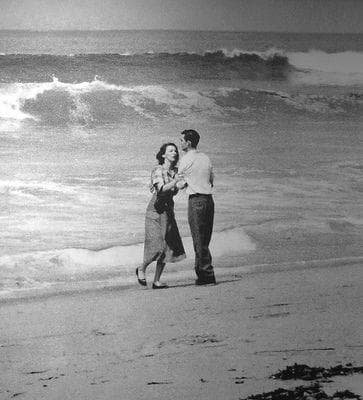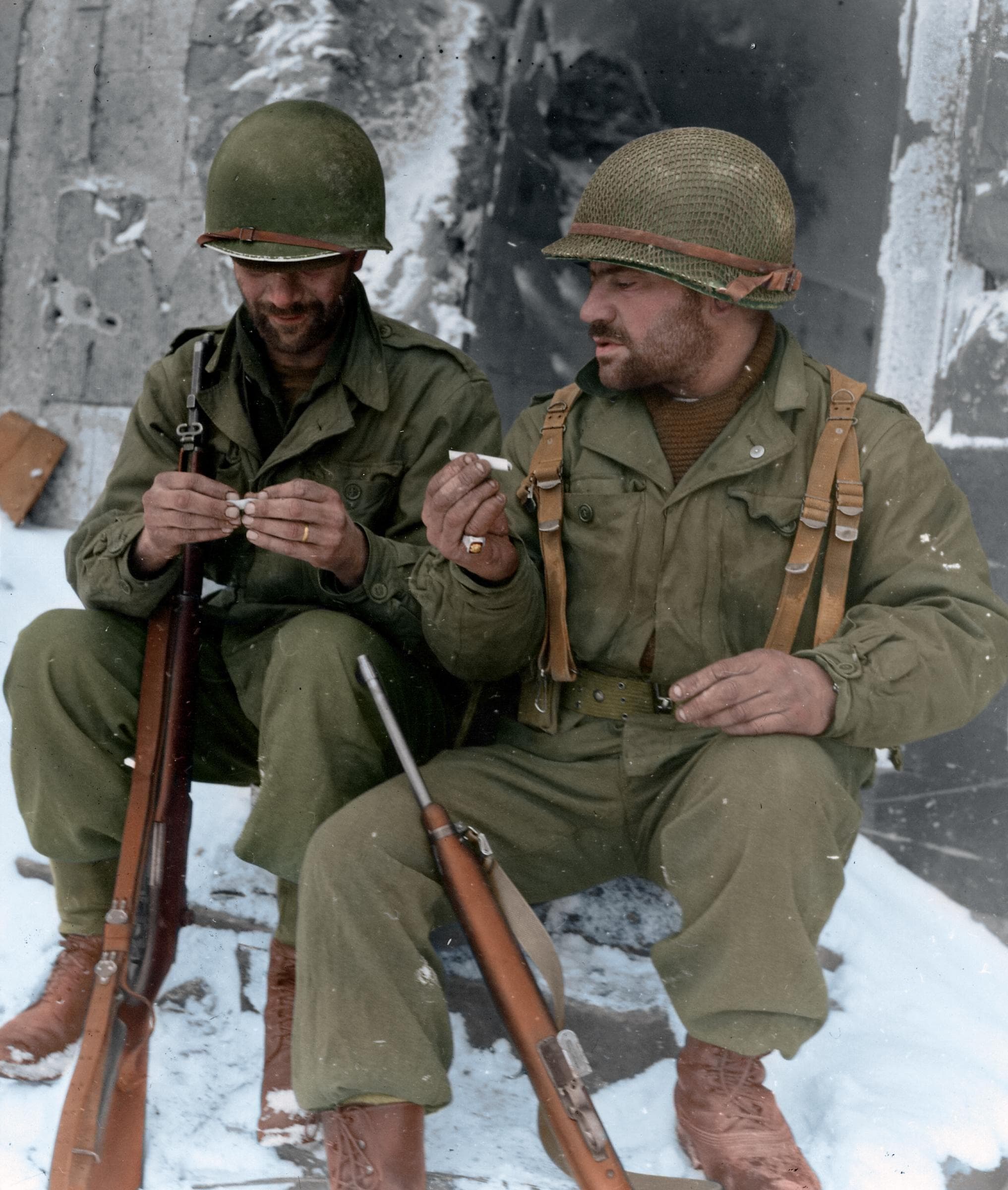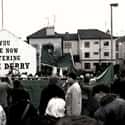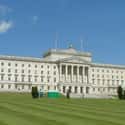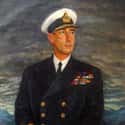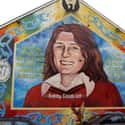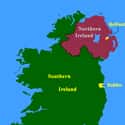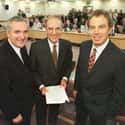-
(#1) April 6, 1966: Loyalist Group 'Ulster Volunteer Force' Targets A Catholic School In Belfast
Tensions between Catholics and Protestants in Northern Ireland escalated in the 1960s. The pro-union Ulster Volunteer Force (UVF) formed out of fear sparked by aggression from Irish Republican Army (IRA) members in Dublin.
On April 6, 1966, the UVF set off an incendiary device at a Catholic girls' school in Belfast. Though this was neither the first nor the last campaign of its kind, it nonetheless represented the civil strife that had become the norm.
-
(#2) October 5, 1968: Royal Ulster Police Assault Civil Rights Marchers In Derry
The Northern Ireland Civil Rights Association helped lead a civil rights march in Derry on October 5, 1968. It was meant to be a call to end injustice toward Catholics, especially in housing and employment. But, after a Protestant group threatened to hold their own parade the same day, the government forbade both marches. Undeterred, the organizers of the civil rights march went ahead with their plans. The police - the Royal Ulster Constabulary - used force in an attempt to get the crowd to disperse, wounding dozens of people in the process.
This strong-arm tactic sparked outrage and riots. Catholics and Nationalists saw the police as an instrument of Protestant authority, rather than keepers of the peace. Many cite this as the beginning of the Troubles.
-
(#3) August 1969: Uprisings Erupt In Northern Ireland
In August 1969, riots broke out across Northern Ireland, as Nationalists, Catholics, and civil rights activists clashed with the Royal Ulster police and loyalists. Some of the most intense incidents occurred on August 12, during the Battle of the Bogside in Derry after nationalist protestors began throwing coins at demonstrators who were a part of the Protestant, pro-union Apprentice Boys organization.
Though the tumults in the city quieted by August 17, the turmoil they unleashed continued throughout Northern Ireland.
-
(#4) August 14, 1969: British Troops Arrive In Northern Ireland
British Army troops were deployed in Northern Ireland in response to the situation in Derry. "Operation Banner," as it was officially known, was meant to keep the peace, but Catholics and nationalists quickly saw the soldiers as oppressive symbols of unionism and occupation.
Over the course of nearly 40 years, the presence of the British Army sometimes intensified conflict - soldiers would both be the targets and perpetrators of aggressive acts. They didn't leave Northern Ireland until 2007.
-
(#5) January 30, 1972: The British Army Slays 13 Civil Rights Protestors On 'Bloody Sunday'
In an attempt to quiet protestors, the government banned a Derry march intended to oppose the internment of suspected Irish nationalists. But the ban didn't stop demonstrators - the rally went ahead as scheduled on January 30.
British Army troops met the protestors en route, and things quickly spiraled out of control. Soldiers shot into the crowd and slew 13 people, including several teenagers. For Catholics and nationalists, "Bloody Sunday" became a pointed example of a state act of aggression against them.
-
(#6) March 30, 1972: The Parliament Of Northern Ireland Is Suspended So That The UK Can Directly Run The Government
It soon became clear sending British troops to Northern Ireland was doing little to stabilize the country. Consequently, the London-based government of the United Kingdom sought greater control over Northern Irish affairs, especially as tensions mounted with Ireland in the wake of Bloody Sunday.
In March 1972, Northern Ireland's parliament - which had existed since 1921 - was dissolved, and London assumed direct governance over Northern Ireland.
-
(#7) July 21, 1972: The IRA Detonates 20 Devices In Belfast, Slaying 9 People And Wounding Over 100 On 'Bloody Friday'
The year 1972 proved to be one of the bloodiest during the Troubles. Nearly six months after Bloody Sunday, the IRA committed a large-scale act of terror. On July 21, members of the organization set off incendiary devices near shops and bus stops in Belfast. These claimed the lives of nine people - including civilians - and wounded 130 more.
Decades after this incident took place, the IRA apologized for it.
-
(#8) October-November 1974: The IRA Assaults Pubs In England, And Parliament Passes The Prevention Of Terrorism Act
In its quest to push the British out of Northern Ireland, the IRA decided to take their unrest to England. In October, members of the IRA slew five people in pubs in the southern English town of Guildford. In November of the same year, the IRA staged another offensive: 21 people perished after explosions rocked two pubs in Birmingham, a city with a significant number of Irish immigrants.
In response, many in England went after their Irish neighbors, and anti-Irish sentiment led to the wrongful conviction of six Irish men for the Birmingham acts of aggression.
The United Kingdom Parliament wasted no time in condemning the IRA. By the end of the month, it had passed the Prevention of Terrorism Act, a measure which outlawed all such organizations, banned certain suspicious individuals associated with these organizations from entering the country, and allowed law enforcement officials to detain suspects without charge.
-
(#9) August 27, 1979: Members Of The IRA Slay The Queen's Cousin
The IRA's campaign of tactics wasn't limited to public places - they also went after high-ranking individuals. Lord Louis Mountbatten - the queen's second cousin - was vacationing with his family in Ireland in August 1979. They decided to go fishing, and shortly after starting the boat, an incendiary device went off. Lord Mountbatten, his teenaged grandson, and two others were slain as a result.
Members of the IRA had planted the device on Mountbatten's boat and activated it remotely.
-
(#10) May 5, 1981: Republican Prisoner Bobby Sands Passes After Going On A 66-Day Hunger Strike
Belfast-born Bobby Sands joined the IRA as a teenager and was sentenced to a 14-year prison term in 1976. Five years later in 1981, Sands led nine others on a strike in which they refused to eat in protest of not being given the status of political prisoners. In Sands's view, their struggle was undeniably political, and he believed the IRA was locked in a "perennial war fought between Irish people and an alien, oppressive regime that refuses to withdraw from our land."
United Kingdom Prime Minister Margaret Thatcher did not budge in her refusal to confer political status on the IRA prisoners - in her eyes, they were merely delinquents. She said, "It is not political, it is crime." Her unyielding attitude sparked international outrage and condemnation.
The hunger strike stretched on for weeks. Sands's weight fell to 95 pounds, and after 66 days he perished on May 5, 1981.
-
(#11) October 12, 1984: The Provisional IRA Targets A Hotel In An Attempt To Eliminate Margaret Thatcher
The United Kingdom's Conservative Party - Prime Minister Margaret Thatcher's party - was having its 1984 conference at the Grand Hotel in Brighton, England. In the early morning hours of October 12, a detonation device went off, ripping open the building and claiming five people's lives. The Prime Minister was unharmed.
For weeks, they had planned to commit this act at the Grand Hotel; the IRA planted the 20-pound device there a month before the event.
-
(#12) November 15, 1985: The Anglo-Irish Agreement Gives Ireland Some Say Over Northern Ireland's Affairs
One of the most significant political developments in the era of the Troubles was the signing of the Anglo-Irish Agreement. In a bid to signal their shared stakes in the contested future of Northern Ireland, both the United Kingdom and the Republic of Ireland signed the treaty in County Down. The agreement promised that Ireland would have some say in Northern Irish affairs.
Though many saw the agreement as a positive moment of cooperation between the United Kingdom and Ireland, not everyone welcomed it. Pro-British unionists protested the treaty. Moreover, Prime Minister Margaret Thatcher was not wholly pleased with it.
-
(#13) December 15, 1993: Downing Street Declaration Affirms The UK's Willingness To Let Go Of Northern Ireland
The 1990s marked a turning point for Northern Ireland. On December 15, 1993, British Prime Minister John Major and Irish Prime Minister Taoiseach Albert Reynolds discussed the best way to bring about peace and stability in Northern Ireland, and they finalized the Downing Street Declaration.
Though the declaration did not change the status of Northern Ireland or its membership in the United Kingdom, it did proclaim the UK's willingness to let Northern Ireland go if a majority of the Northern Irish wished it. In other words, the United Kingdom agreed to allow the people of Northern Ireland to determine whether or not they wanted to stay in the UK or unite with the Republic of Ireland.
-
(#14) April 10, 1998: The Good Friday Agreement Supposedly Brings An End To The Troubles
In response to pressure from the republican political party Sinn Féin, the IRA announced a ceasefire in 1997, opening a path for peace talks. Representatives from Northern Ireland, Ireland, and the United Kingdom signed off on the Good Friday Agreement the next year. In it, the competing political parties in Northern Ireland agreed to share power, thus reducing sectarian tension and strife. Political and paramilitary prisoners were also released.
Though some criticized the agreement, it went to a public referendum and proved popular in both Ireland and Northern Ireland.
-
(#15) August 15, 1998: An Unprecedented Act In Omagh Claims The Lives Of 29 People
The hope surrounding the Good Friday Agreement - which was supposed to mark the end of the Troubles - was undercut a few months later, when an act of aggression shocked Northern Ireland. A rogue offshoot organization called the Real IRA set off an incendiary device inside a car in Omagh on August 15, 1998, claiming the lives of 29 people.
According to the BBC, it was "the biggest single atrocity in the history of the Troubles in Northern Ireland."
-
(#16) April 19, 2019: Journalist Lyra McKee Is Shot In The Midst Of A Riot Allegedly Led By The New IRA
Politicians consider the incident in which journalist Lyra McKee was senselessly shot at a riot in Derry an "act of hate." McKee passed at the hospital shortly after the attack. She had tweeted a photo from the streets with the caption, "Derry tonight. Absolute madness."
McKee's demise is being investigated by the Police Service of Northern Ireland who are treating it as a "terrorist incident" and allege the new IRA are responsible. Police chief Mark Hamilton said:
We believed that violent dissident republicans were planning attacks in this city and we were looking for munitions and firearms that we believe may be about to be used across the Easter weekend.
He went on to describe the scene where a gunman aimed at police, wounding McKee in the process. He describes the act as "cold and callous. Reckless. And clearly orchestrated."
New Random Displays Display All By Ranking
About This Tool
Catholicism and Protestantism have experienced a century of confrontation in Northern Ireland. 60% of Northern Ireland’s population are descendants of British immigrants who believe in Protestant Christianity, and the remaining 40% are descendants of indigenous people on the island of Ireland who believe in Catholicism. For a long time, they lived separately and did not communicate with each other.
Political problems have led to serious sectarian conflicts in the history of Northern Ireland. Protestant descendants in Northern Ireland for hundreds of years have vowed to resist any political control of the Catholic Republic of Ireland. The random tool introduced 16 important times of the feud between Catholics and Protestants in Northern Ireland.
Our data comes from Ranker, If you want to participate in the ranking of items displayed on this page, please click here.

